[ad_1]
Monday newsletters always feature top 10 travel lists to inspire.
Today (January 19, 2015): most spectacular cathedrals of France.
France is home to some of the world’s most spectacular cathedrals. A cathedral is not named as such because of its size, but is technically defined as a Christian church that contains the seat of a bishop. But with spires reaching toward the sky, magnificent sculptures and colorful stained glass, these gothic buildings will leave you wondering how in the heck they were able to construct such magnificent structures. Apart from the beauty of their architecture, these cathedrals also attest to the power of Christianity in medieval France. I hereby present you a top 10 list of the most beautiful and spectacular French cathedrals.
There is more information below the slideshow. Click the name of the cathedral (in red) for a direct link to the town’s official tourism website, where you can find more details. Think I missed one? Share your favorite French cathedral in the comments section, or take my poll below!
*** Follow me on Twitter, Instagram or Facebook for a daily moment of travel inspiration ***
10. SAINT ETIENNE CATHEDRAL, BOURGES
Now classified as a World Heritage Monument of UNESCO, the cathedral of St Etienne of Bourges was built between the late 12th and late 13th centuries. It is one of the great masterpieces of Gothic art and is admired for its proportions and the unity of its design, combining masterly management of space with harmonious proportions and decoration of the highest quality. The tympanum, sculptures and stained-glass windows are particularly striking.
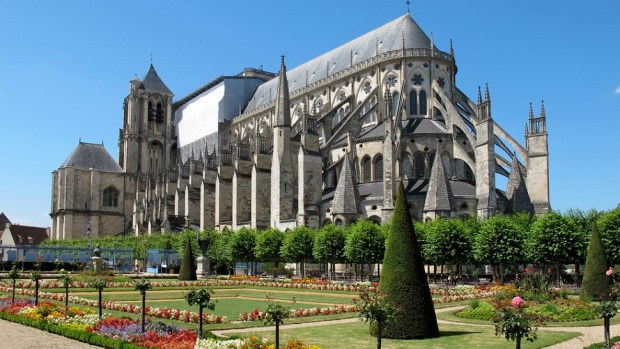
9. BASILICA OF SAINT CECILIA CATHEDRAL, ALBI
The Basilica of Saint Cecilia Cathedral is the most important religious building in Albi, southern France, and the seat of the Archbishop of Albi (in full, Albi-Castres-Lavaur). First built as a fortress begun in 1287 and under construction for 200 years, it is claimed to be the largest brick building in the world. The monument is a testament to the power of the Roman Catholic church following the successful suppression of the Cathar heretics. In 2010 the cathedral was designated a UNESCO World Heritage Site.
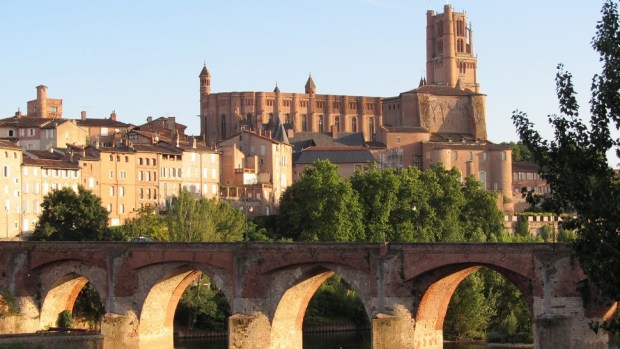
7. NOTRE DAME CATHEDRAL, LAON
Laon’s cathedral is a first-generation Gothic construction started in 1155, eight years before Paris’ Notre-Dame. It replaced a Romanesque cathedral that had been heavily damaged by fire in 1112 and partially repaired before a complete renewal was decided. Laon cathedral is known for its imposing towers, its early gothic architecture, and its importance as a major stop on the medieval pilgrimage route to Santiago in Spain.
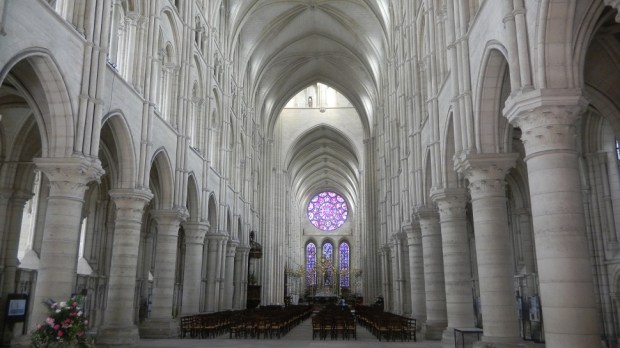
7. NOTRE DAME CATHEDRAL, STRASBOURG
Attracting around 4 million visitors each year, the Cathedral of Strasbourg is the second most-visited cathedral in France after the Notre Dame in Paris. At 142 metres (466 feet), it was the world’s tallest building from 1647 to 1874 (227 years), when it was surpassed by St. Nikolai’s Church in Hamburg, Germany. Recognisable from afar thanks to its atypical allure, Goethe called this gothic edifice a most sublime, wide-spreading tree of God, proclaiming the glory of the Lord”.
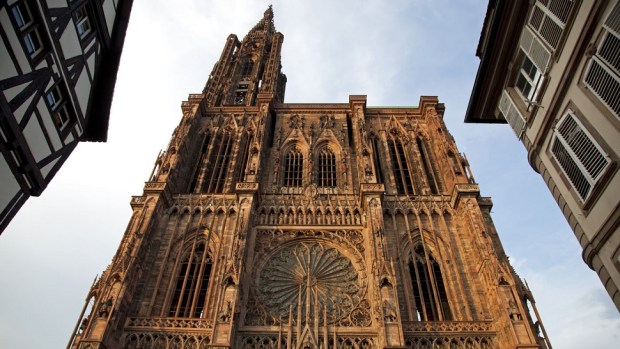
6. SAINT PIERRE CATHEDRAL, BEAUVAIS
Ambitious and gravity-defying, the cathedral boasts the record for the highest ceiling in a gothic choir in the Christendom (48.50m or 149 feet). The cathedral also shows the ambition of the builders who were unable to complete it. Starting construction in 1225, the cathedral was meant to be the greatest church in the kingdom but over the centuries construction experienced many problems and structural collapses. What exists today is impressive enough for us to dare to imagine what the finished project would have been.
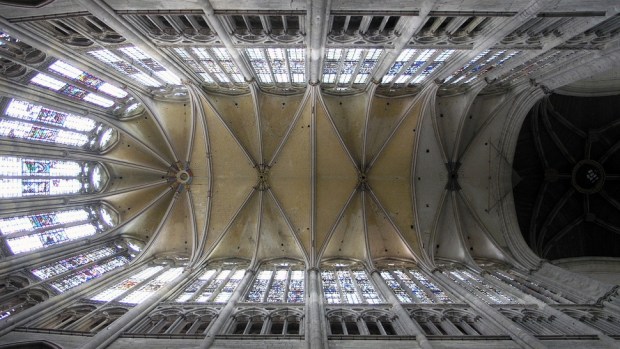
5. NOTRE DAME CATHEDRAL, ROUEN
The primatial Notre-Dame de l’Assomption (Our Lady of the Assumption) cathedral in Rouen, with its very tall lantern tower overlooking the beautiful Norman old town, is a monument symbolic of the city. Considered to be the cathedral with the most “human” traces in the world due to its asymmetrical eastern facade, it is world-renowned thanks to the 28 paintings that the impressionist Claude Monet painted of it, which are spread right around the world.
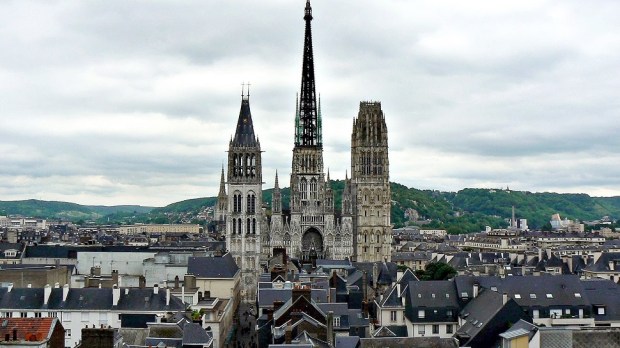
4. NOTRE DAME CATHEDRAL, PARIS
Notre Dame de Paris is arguably the most famous religious monument in the world and widely considered one of the finest examples of French Gothic architecture. The cathedral suffered desecration during the radical phase of the French Revolution in the 1790s, when much of its religious imagery was damaged or destroyed. During the 19th century, an extensive restoration project was completed, returning the cathedral to its previous state. The stain glass windows are breathtakingly beautiful.
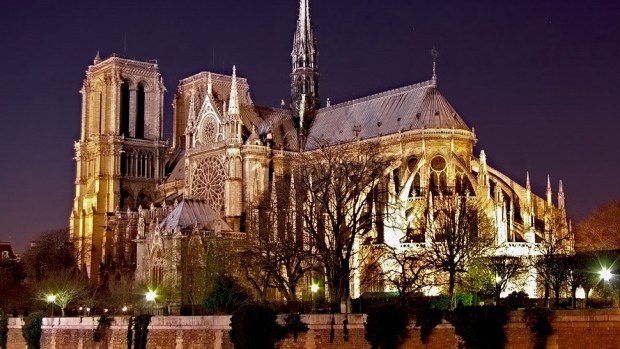
3. NOTRE DAME CATHEDRAL, AMIENS
The Cathedral of Amiens, in the heart of Picardy, is the tallest gothic church and the largest cathedral in France. It is notable for the coherence of its plan, the beauty of its three-tier interior elevation, and the particularly fine display of sculptures on the principal facade and in the south transept. Despite heavy fighting around Amiens during World Wars I and II, the cathedral escaped serious damage. The cathedral was designated a UNESCO world heritage site in 1981 for the beauty and harmony of its art and architecture.
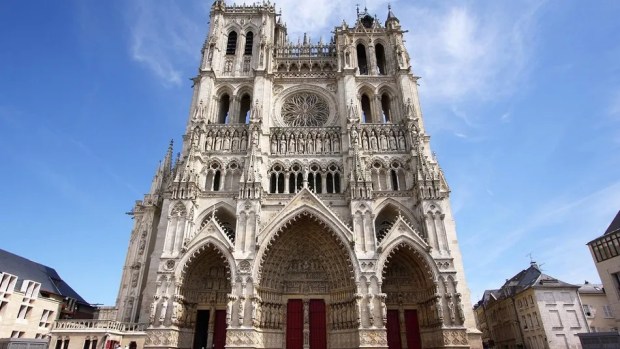
2. NOTRE DAME CATHEDRAL, CHARTRES
Located in the medieval town of Chartres, about 50 miles north of Paris, this cathedral is one of the greatest achievements in the history of architecture. Moreover, it is almost perfectly preserved in its original design and details, giving its visitors an image of how it looked like when it was built. Chartres’ extensive cycle of portal sculpture remains fully intact and its glowing stained-glass are all originals. In addition to its architectural splendor, the cathedral has been a major pilgrimage destination since the early Middle Ages.
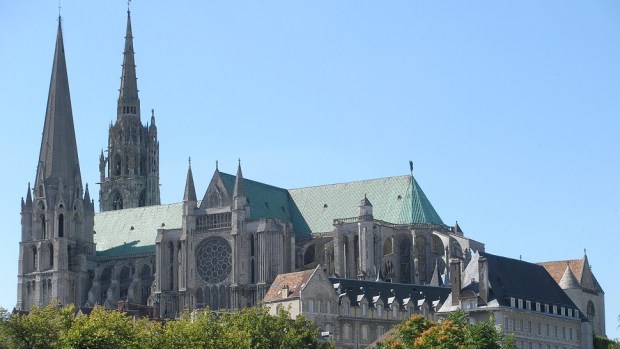
1. NOTRE DAME CATHEDRAL, REIMS
Located in the Champagne-Ardenne region, the city of Reims houses France’s most beautiful and spectacular cathedral. This gothic art masterpiece was the site of the coronation of the French kings of France, the result of a perfect balance between Church and State that made the French monarchy a political model throughout Europe until modern times. Together with the adjacent 9th-century Abbey of Saint Remi and Tau Palace, the former archiepiscopal residence, the cathedral constitutes a UNESCO World Heritage Site.

*** Follow me on Twitter, Instagram or Facebook for a daily moment of travel inspiration ***
[ad_2]
source link



